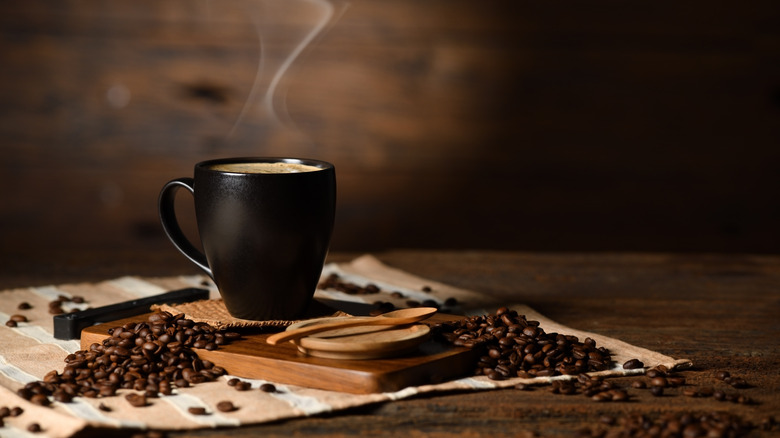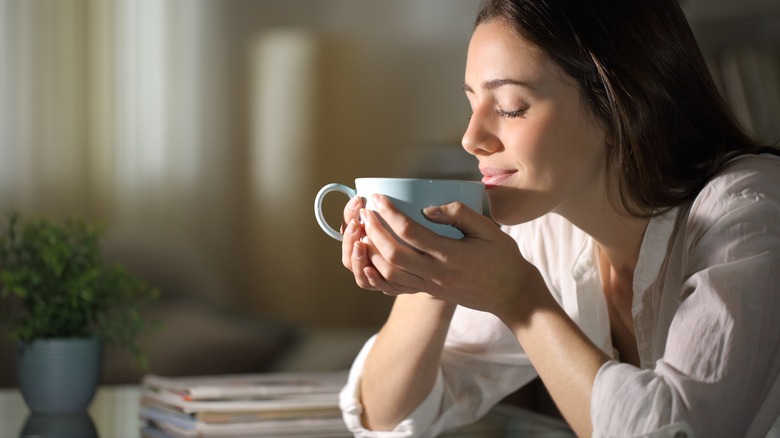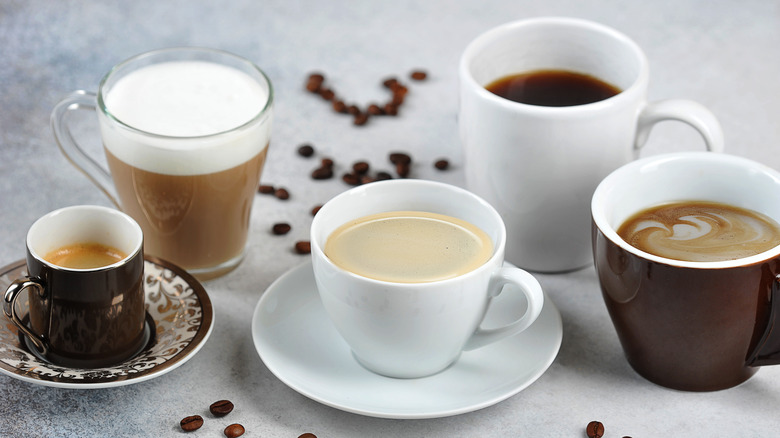Decaf Coffee Is More Hydrating Than You'd Think
Among the many longstanding myths about coffee is the idea that decaf coffee can dehydrate you. After all, coffee is considered a diuretic, meaning it decreases the amount of water in your body by increasing your urine production. Interestingly, it's actually the caffeine in coffee that gives the drink its diuretic tendencies, so because decaf is considered caffeine-free (we'll come back to that later), it doesn't have the same diuretic effect.
Of course, your coffee also has water in it –- about six ounces for every one to two tablespoons of ground coffee –- meaning you're still taking in water. As such, a 2005 study for Neurology and Urodynamics shows that drinking a cup of coffee is effectively as hydrating as drinking a cup of water. In other words, you can drink decaf to your heart's content without worrying about becoming clinically dehydrated, but it's worth noting that decaf may not satisfy your thirst in the same way that water does.
Is your decaf coffee actually caffeine-free?
Although we consider decaf coffee to be, well, decaffeinated, that's not entirely the case. The average eight-ounce cup of decaf coffee actually contains caffeine (about three milligrams, in fact) but we consider it negligible compared to the 95 milligrams in a regular coffee of the same size. Because the caffeine is so minimal, drinkers of decaf coffee don't have to deal with the same effects as regular coffee –- the caffeine crash, the jitters, the whole diuretic situation.
That being said, the process you use to make a cup of coffee may result in more or less caffeine. For instance, making stronger brews or using larger amounts of ground coffee will mean more caffeine, realistically only by a few milligrams. Still even residual coffee in your cup or coffee pot can cause your caffeine intake to increase, so if you're drinking decaf to avoid caffeine sensitivity, you might want to consider keeping your coffee implements sparkingly clean.
How decaffeination affects coffee
Yes, decaf coffee contains enough water and such a small amount of caffeine that it hydrates you rather than acts as a diuretic, but this doesn't mean that decaf doesn't taste as delicious as regular caffeinated coffee. Why, then, do people assume decaf is just watered-down coffee?
One process of decaffeinating coffee beans entails soaking them in water to release the caffeine. Unfortunately, some of the beans' flavor is lost during the decaffeination process, meaning that they lose some of that signature coffee taste along with the caffeine. Such is also the case with chemical decaffeination, which subjects beans to ethyl acetate — though this method can leave its own residual flavor behind in caffeine's place.
Nonetheless, you can adapt your brewing to make a stronger cup of decaf. As we mentioned previously, you can use more ground coffee per cup (at the cost of increasing your caffeine intake) or even a finer grind. You can also invest in premium quality beans to get an overall better flavor. Either way, decaf doesn't have to be any less appealing than regular coffee.



